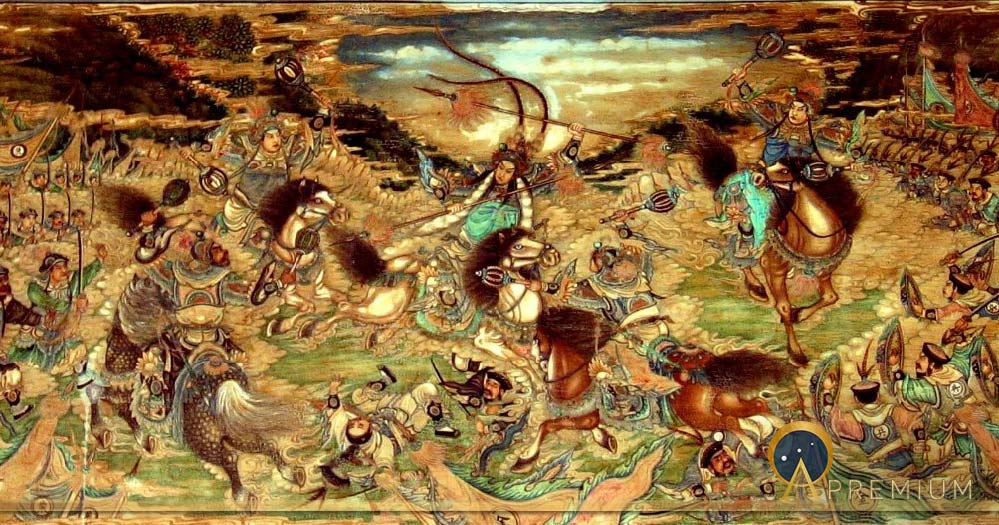Historical Overview Of Chinese Women Warriors
It comes as no surprise that stories about women's involvement in wars pique people's interest all over the world. Apart from challenging fundamental gender norms through their daring deeds and dramatic actions, the mere image of a woman killing another human being calls into question long-held beliefs about women as life-givers rather than death-bringers. The sight of graceful and delicate female bodies in military uniforms challenges conventional notions of feminine beauty and grace, and the idea of women putting their lives in danger defies the notion that such bravery is primarily a masculine trait. All these images beg the question, "How can a woman ever presume to participate in battle?”

A Southern Song painting depicting the male generals who stopped the Jin advance into southern China. (Public Domain)
An enduring image reinforced by countless war movies is that of women sending their men off to war from the family home's doorstep and then waiting for them to return once victory is secured. The masculinity of the war in which soldiers are expected to participate is centered on the basis of protection of women and their sexual virtue. This placement of women who “need to be defended” thus isolates the feminine in a distinct social space and heighten the masculine world of the soldiers' barracks. Women warriors upend this rather neat distinction by blurring the lines between the traditional demarcation of war space. Thus, instead of the very clear distinction of women at home and men in the barracks, the barracks also become a place where women can live, just as much as the home is a place where men can take refuge.

Hua Mulan resting with her sword beside her by Kansetsu Hashimoto (Public Domain)
Hua Mulan Defending Her Family’s Honor
The tale of Hua Mulan is a clear example of this as, due to her father being too old and her younger brother being too young, she decided to take her father’s place in the war. Her father, therefore, stayed home as Hua Mulan went to war. Hua Mulan exemplifies that some women simply do not regard themselves as potential victims to be rescued. These women seek active roles which in turn challenge the gendered principle that war increases men's masculine power by affording them the role of protector of women and their virtue. Hua Mulan rejected a system that would reduce her to a sexual integrity symbol, at the same time demonstrating her filial piety to her father and her family’s honor.
Like this Preview and want to read on? You can! JOIN US THERE ( with easy, instant access ) and see what you’re missing!! All Premium articles are available in full, with immediate access.
For the price of a cup of coffee, you get this and all the other great benefits at Ancient Origins Premium. And - each time you support AO Premium, you support independent thought and writing.
Martini Fisher is a Historian and author of many books, including "Time Maps: Matriarchy and the Goddess Culture” | Check out MartiniFisher.com
Top Image: Mural in the Summer Palace of Yue Fei, a general who led his forces against the Jin Dynasty (Public Domain)
By: Martini Fisher

















